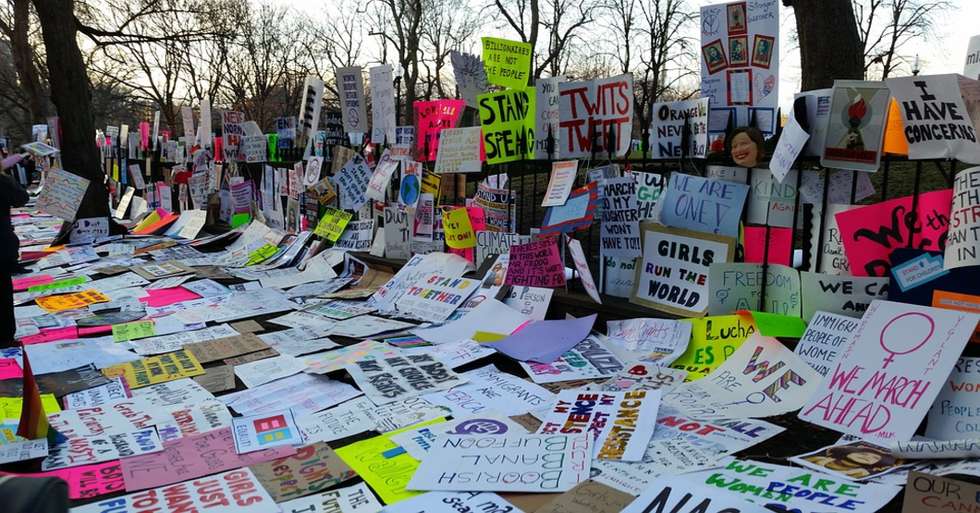Feminism is a noun, and it means the advocacy of women's rights on the basis of the equality of the sexes, according to Google.
A feminist is a person who advocates for women's rights. However, sometimes, not all of those people, mainly, white women support for other groups of women's rights.
That is what we call white feminism, feminism that ignores intersectionality. Intersectionality is an analytic framework which attempts to identify how interlocking systems of power impact those who are most marginalized in society. It considers various aspects of humanity such as class, race, sexual orientation, disability, and gender.
What does this mean?
Marginalized women are not being represented when it comes to advocating for women's rights. Feminism was not coined for marginalized women, it is not inclusive, so can it become more inclusive to incorporate women of all backgrounds?
Yes!
Here is what women are doing currently to include all women.
During the Women's March, the term intersectional feminism was thrown around. It is a type of feminism that looks at how women of different backgrounds experience oppression. This was very important because, beforehand, feminists only focused on the problems of middle-class white women, but now with intersectional feminism, all women are being represented.
Because as a whole, we have so much to fight for.
As of 2016, women 82 cents out of every dollar a man made, and the pay gap is even more extensive for Hispanic and Black women. Hispanic women made 54 cents for every dollar a white man earned, which means they will lose more than a million dollars over a 40-year career based on today's wage gap, and Black women make 63 cents for every dollar a white man earns, meaning they will typically lose more than $840,000 over a 40-year career, according to, NWLC, the National Women's Law Center.
Some women are also still fighting for the rights over our bodies. That can mean choosing what we want to do when it comes to having an abortion or not. There are quite a few people (mostly men) who believe that abortions should be banned, however, there are women who think it should not be banned because if it were we, women, would essentially lose some of the rights we have over our bodies.
Very recently, Ohio tried to pass a law that would prohibit abortions, even in cases of rape, incest or danger to a woman's life. The bill got shut down, but now the Republicans in Ohio want to create a new law to ban abortions altogether.
If women are going to fight this, we need to be able to work together and engage in intersectional feminism.

















